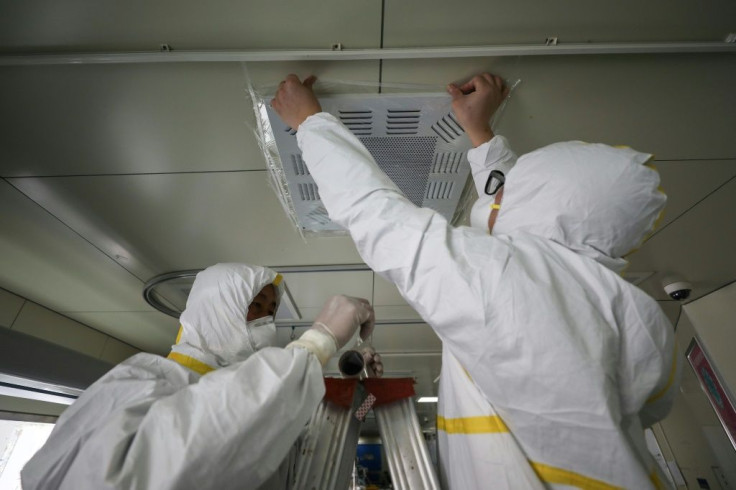Trump Again Blames China For Coronavirus Pandemic: 'It’s China’s Fault'
KEY POINTS
- Trump declares “We must stop politicizing the virus" shortly before blaming China for the COVID-19 pandemic
- He claims nearly half of all U.S. deaths from the “China virus” occured in nursing homes and long-term care facilities
- Comments come days before a planned conference with China about trade deal complicance
President Donald Trump played the China blame game Monday, calling COVID-19 the "China virus" only a few sentences after urging Americans to stop politicizing the pandemic.
Trump's latest White House coronavirus task force press briefing seemed to take a conciliatory turn when he declared, “We must stop politicizing the virus."
But in the next breath, Trump said the world "must be united in our condemnation of how this virus came to America, how this virus came to the world. And we’re going to figure it out and we’re going to find out and we’re very angry about it.”
Then, he let loose on China for the terrific suffering being endured by Americans due to the pandemic. As of Monday, the U.S. had more than 5 million cases and 163,000 deaths -- the most in the world in both categories.
"The virus came from China," charged Trump. "It’s China’s fault."
Trump then falsely claimed nearly half of all deaths in the U.S. inflicted by the “China virus” occured in nursing homes and long-term care facilities while boasting about his administration's handling of the pandemic.
He also claimed health officials continue to see “encouraging signs” about the ebbing pandemic. Trump claims the rate of new cases and hospitalizations continue to diminish in Florida and Texas.
“I do want to say that at the end of a very short period of time we will be in good shape in this country,” said Trump.
Trump's latest attack on China comes just days before his White House team led by U.S. Trade Representative Robert Lighthizer opens a videoconferencing meeting with Chinese Vice Premier Liu He on Aug. 15.
It's unclear what ill effects Trump's latest outburst against China will have on the meeting, which will assess China's compliance in phase one of a bilateral trade agreement signed Jan. 15 in Washington.
The immense damage inflicted by COVID-19 on its economy means China was unable to fulfill its first-year goal of increasing its imports from the U.S. to $77 billion. Chinese imports of American produce are well behind the 50% increase needed to meet the 2020 target of $36.5 billion in purchases.
Political analysts hope the Lighthizer-He meeting will take place despite Trump's threats to terminate the phase one deal as he blame to China for the raging pandemic.

© Copyright IBTimes 2024. All rights reserved.





















